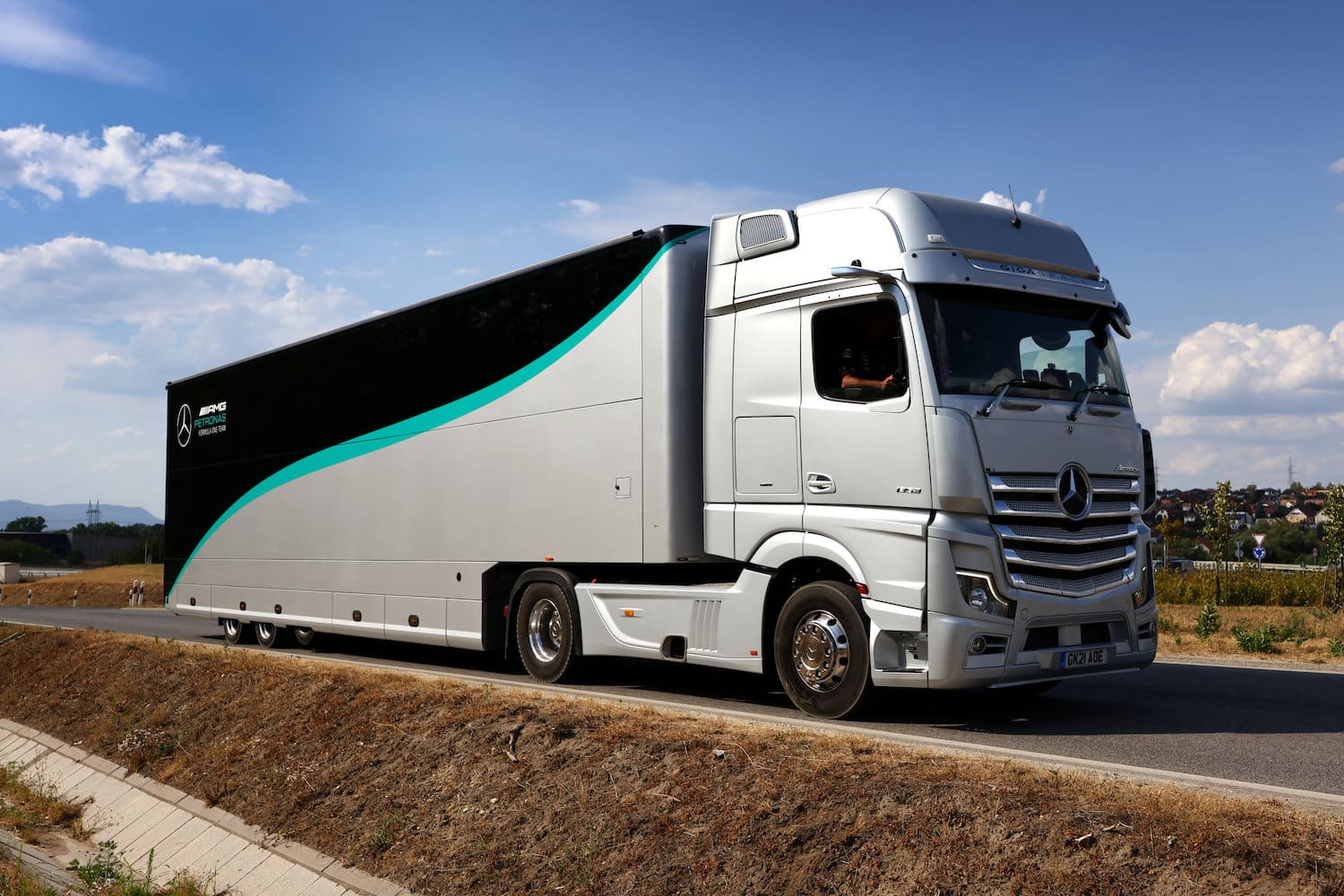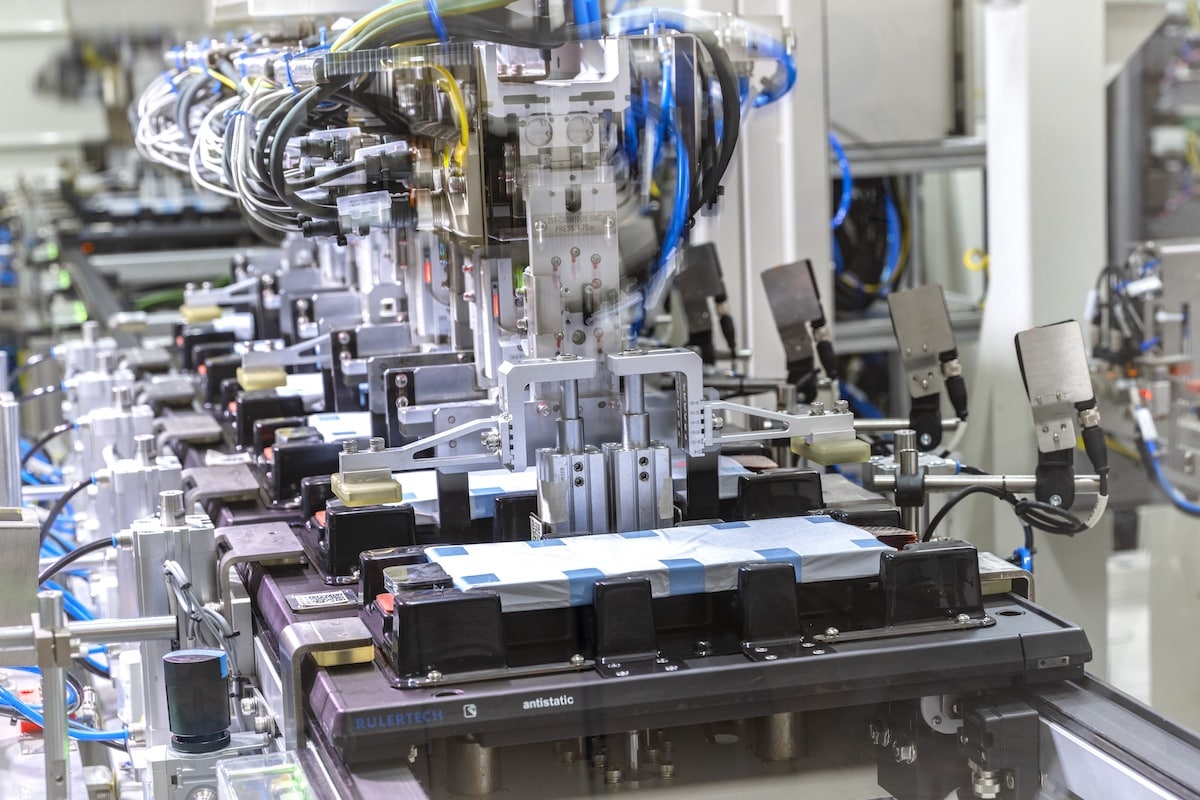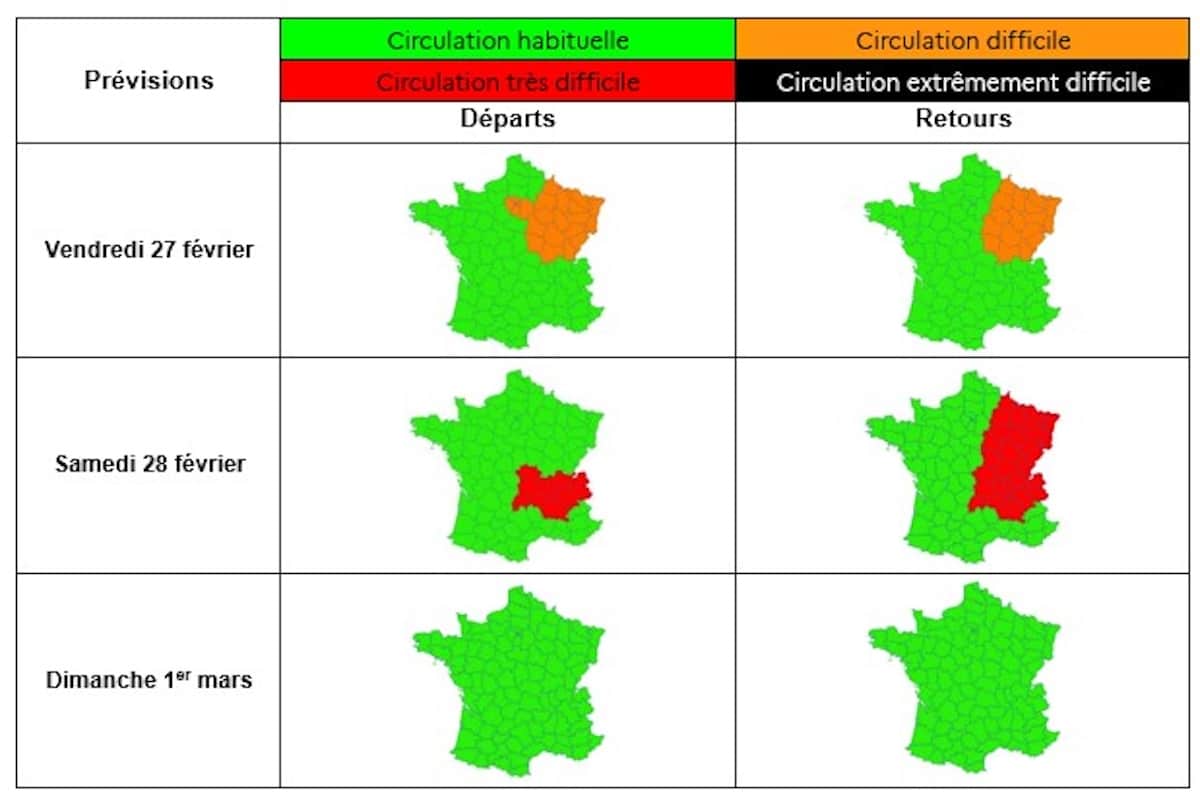Logistics: Mercedes F1 Team Aims to Cut CO2 Emissions by 200 Tons Annually

The Mercedes-AMG PETRONAS F1 Team aims to reduce its logistics-related emissions by 200 TCO2 through the use of biofuels.
Travel for European Grands Prix accounts for hundreds of thousands of kilometers annually. Therefore, the climate impact is significant. The German team is aware of this and aims to minimize it with the support of its technical partners in Formula 1, including the oil company PETRONAS. A first test was conducted in 2022 using a biofuel, which reportedly led to an 89% reduction in freight CO2 emissions.
“In a sport that travels around the world to race, we are very aware of the logistical impact of our activities. Wherever we need to transport our people and goods, we continuously seek better ways to do so and strive to be as sustainable as possible in all areas of our transportation needs,” the team spokesperson stated.
Across nine races in Europe, the Mercedes-Benz Actros truck fleet, which transports all the necessary freight for each race, will fuel up with HVO100, a second-generation biofuel developed by Petronas. From their starting points in the UK and Germany to their arrival at circuits across Europe, each truck travels between 9,000 and 10,000 km a year.

“This is a major undertaking, with several known challenges related to supply in certain geographic areas. That’s why we are announcing our ambition to achieve more than 60% reduction (not 89%, which is measured using the biofuel alone. Ed.) in emissions and to save 200 tons of CO2 at this stage, with a comprehensive analysis on final carbon emission savings and the success of the project to be published at the end of the season. Our electrical generators, used to power our facilities once placed in the Formula 1 paddock, will also run on biofuel. We are taking bold measures to address our main sources of emissions and consider sustainable fuels essential to reducing our carbon footprint. Following a pioneering investment in sustainable aviation fuel, which reduces by nearly 50% the emissions related to our team’s air travel, the focus is now on reducing the impact of our road freight logistics.”
It remains to be seen whether this technology can be scaled to the millions of freight trucks circulating daily across the continent to generate a truly significant impact.
READ ALSO: Stellantis relocates its hydrogen utility vehicles to France
This page is translated from the original post "Logistique : Mercedes F1 Team veut réduire ses émissions de CO2 de 200 tonnes par an" in French.
We also suggestthese articles:
Also read







